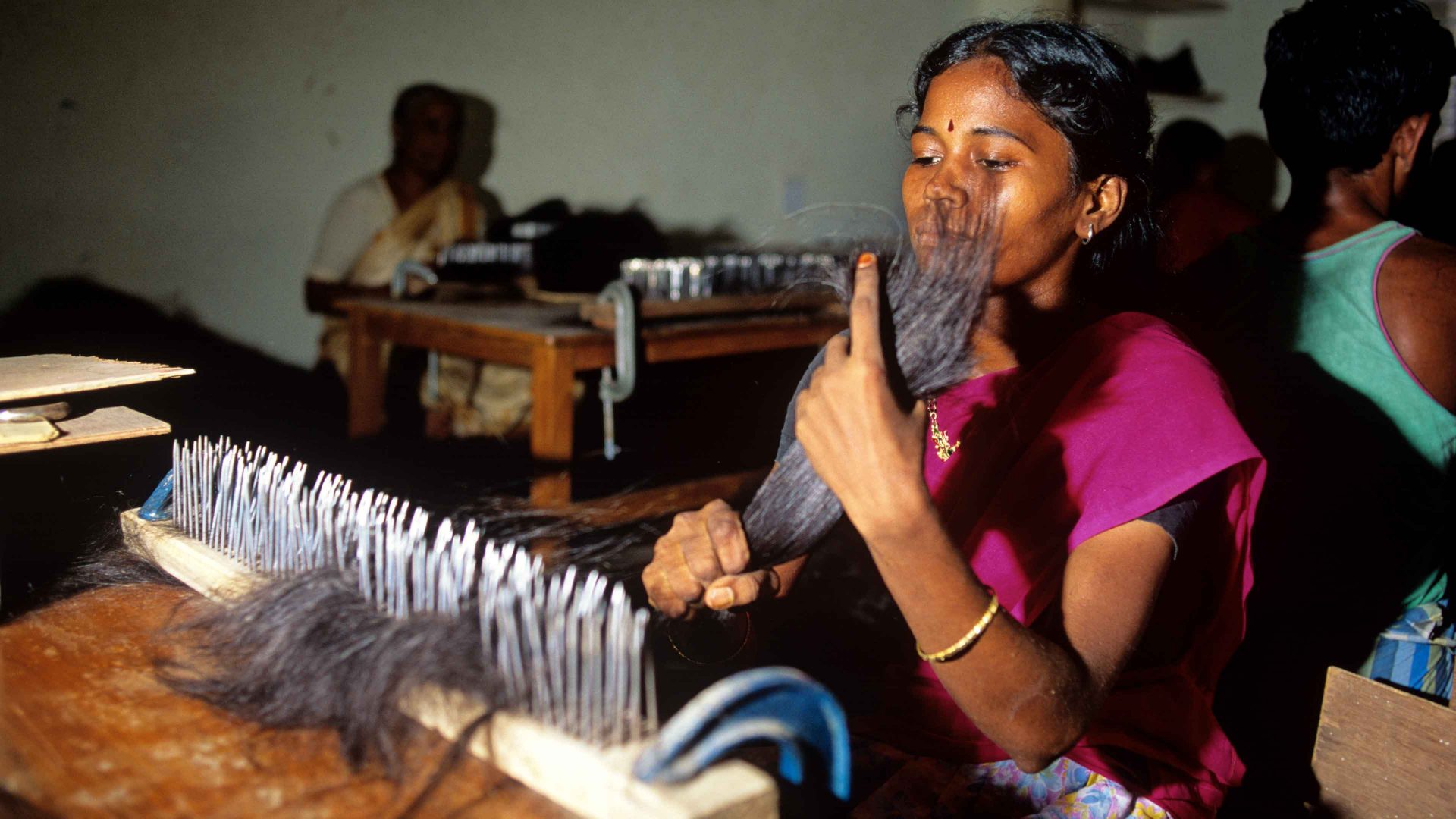Gangaraju B returns home on a busy Monday evening after a nine-hour workday in Bengaluru’s monsoon, having battled the downpours, the bottlenecked junctions, and countless disapproving looks. All he brought back from work was 150 grams of human hair.
Gangaraju, 48, is a hair picker, part of an invisible workforce that gathers what most others would not even touch. The trade is a matter of survival, though it barely puts rice on their plates.
Bengaluru has thousands of informal waste workers, and that includes the hair collectors, many of whom belong to marginalised nomadic tribes. They criss-cross the city daily – women on foot, men on public transport – scouring drains, roadside rubbish heaps, beauty parlour bins, and even homes.
The work is meticulous. Hair must be separated from plastic wrappers, food waste, or syringes. A good week might fetch a kilo, though that is rare. Dealers pay about R1,500 ($18) for a kilo of good-quality hair, depending on texture and length, and it is then used to make wigs. Longer, undamaged strands fetch better prices, while short or brittle hair is nearly worthless. Collectors seldom receive cash up front.
“More than our work and poverty, it is the people’s attitude towards us that hurts us the most. They see us as thieves and sometimes set their dogs on us. We are only here to collect the hair and not steal,” says Gangaraju.
When I visited him at his tarpaulin-covered shelter, what struck me was not the large drainage canal nearby or the fact that the temporary houses were erected on a graveyard, but how hidden the entire settlement was inside the urban madness of India’s Silicon Valley. Even though it sits right under people’s noses, almost none of Bengaluru’s 15 million residents has any clue about these hair pickers.
Some still rely on barter. Hair is exchanged for bangles, combs, stainless steel utensils, or plastic buckets, which are then resold in local markets. Yet the irony is bitter. Hair that might one day adorn wigs in Paris or Lagos begins its journey traded for a cheap comb in Bengaluru.
Covid upended this fragile balance. During lockdown, salons shuttered and the city’s drains dried up. For hair pickers, there was no work. “We survived because of some generous NGOs,” recalls Devi, 37, who acts as the community leader. With public movement restricted, police often harassed or fined them when they were caught with bags of waste.
Even when the city reopened, demand was weak. Export markets were paralysed, and warehouses were holding unsold stock. Buyers slashed their rates, passing the loss on to the collectors. From around R3,500 a kilo before, the rate fell sharply.
Suggested Reading

Working with gold in India has lost its glister
Many of the collectors live in makeshift colonies on the city’s edges, their shelters made from tarpaulin, tin sheets, or discarded advertising flex boards. Amenities are minimal. There is no running water. Electricity is drawn from precarious connections. The drains flood each monsoon.
Women carry the heaviest burdens. They often walk barefoot for 10 to 12 hours a day, sifting waste while minding children slung on their hips. Older men travel farther afield in crowded buses to collect from towns around Bengaluru, sometimes sleeping on pavements to guard their bags. There is stigma, too. Handling discarded hair is considered polluting; neighbours recoil, and children face taunts at school, yet the trade continues across generations, because there are so few alternatives.
From Bengaluru’s gutters, hair travels to middlemen, then to processing hubs where it is washed, sorted, and bundled. From there, Indian hair makes its way to China, Africa, and Europe, forming part of a global market in wigs and extensions worth billions of dollars. Yet the collectors, at the very start of this chain, have no part in those riches.
There are efforts to change this. Waste-picker unions campaign for formal recognition of all categories of waste work, including hair. NGOs like Hasiru Dala have pushed authorities to issue ID cards and extend healthcare or school support to workers’ families.
As Bengaluru expands, so does its cosmetic waste, and hair pickers quietly shoulder a job no one else wants. But without institutional recognition, their future is perilously tied to market whims. For Gangaraju and Devi, tomorrow means the same as today: another long walk, another drain to bend over, another bag to fill with strands the city discards.
Vasudevan Sridharan is a freelance journalist based in southern India



